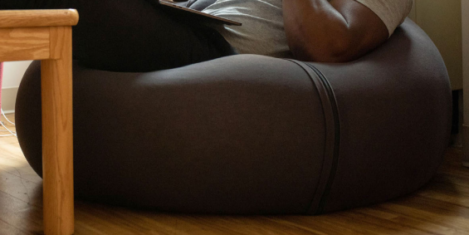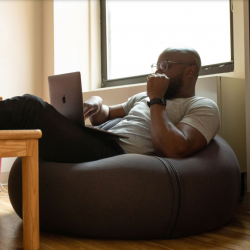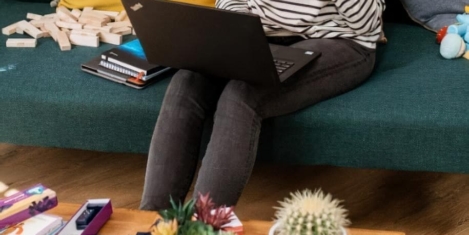To provide the best experiences, we use technologies like cookies to store and/or access device information. Consenting to these technologies will allow us to process data such as browsing behaviour or unique IDs on this site. Not consenting or withdrawing consent, may adversely affect certain features and functions.
The technical storage or access is strictly necessary for the legitimate purpose of enabling the use of a specific service explicitly requested by the subscriber or user, or for the sole purpose of carrying out the transmission of a communication over an electronic communications network.
The technical storage or access is necessary for the legitimate purpose of storing preferences that are not requested by the subscriber or user.
The technical storage or access that is used exclusively for statistical purposes.
The technical storage or access that is used exclusively for anonymous statistical purposes. Without a subpoena, voluntary compliance on the part of your Internet Service Provider, or additional records from a third party, information stored or retrieved for this purpose alone cannot usually be used to identify you.
The technical storage or access is required to create user profiles to send advertising, or to track the user on a website or across several websites for similar marketing purposes.
 The COVID-19 pandemic has brought anxiety to many, but people are positive about their work, claims a new survey from The Myers-Briggs Company, which looks at how people’s personality type influences their feelings about the pandemic. (more…)
The COVID-19 pandemic has brought anxiety to many, but people are positive about their work, claims a new survey from The Myers-Briggs Company, which looks at how people’s personality type influences their feelings about the pandemic. (more…)







 Progress for women in work could be back at 2017 levels by the end of this year as a result of the COVID-19 pandemic, according to analysis conducted for
Progress for women in work could be back at 2017 levels by the end of this year as a result of the COVID-19 pandemic, according to analysis conducted for 
 More than half of financial institutions say they expect to have more ‘gig economy’ based employees over the next three to five years, according to PwC’s report,
More than half of financial institutions say they expect to have more ‘gig economy’ based employees over the next three to five years, according to PwC’s report, 
 The impact of the nation’s deteriorating mental health from Covid-19 lockdowns and other restrictions cost UK businesses £14bn last year, according to a study by
The impact of the nation’s deteriorating mental health from Covid-19 lockdowns and other restrictions cost UK businesses £14bn last year, according to a study by 
 The
The 
 For now, just forget the
For now, just forget the 
 Working together in person has far-ranging benefits on everything from mental health to economic growth according to a new report by
Working together in person has far-ranging benefits on everything from mental health to economic growth according to a new report by 
 How good your line manager is makes the difference between an employee coping or struggling in lockdown. But too often line managers’ heroic efforts are not noticed by their employers, claims new report, titled
How good your line manager is makes the difference between an employee coping or struggling in lockdown. But too often line managers’ heroic efforts are not noticed by their employers, claims new report, titled 
 Lockdown meant that the choice to work from home was made for us. However, for many the decision to continue to do so post-lockdown will be a personal choice. The question we should all ask ourselves is, whether when we are outside of any lockdown restrictions, is working from home really a workplace revolution or simply an act of selfishness? For thousands of workers who’ve spent years of their lives commuting to offices that feel more like soul-less factories than inspiring and engaging workplaces, it’s no wonder that enforced work from home has proven popular.
Lockdown meant that the choice to work from home was made for us. However, for many the decision to continue to do so post-lockdown will be a personal choice. The question we should all ask ourselves is, whether when we are outside of any lockdown restrictions, is working from home really a workplace revolution or simply an act of selfishness? For thousands of workers who’ve spent years of their lives commuting to offices that feel more like soul-less factories than inspiring and engaging workplaces, it’s no wonder that enforced work from home has proven popular. 
 There’s no question that many people now, feeling the weight of lockdown 3 and with no clear view on the timing of any sort of ‘return to normal’, are finding it tough to stay motivated. Many are burnt out. We can gain some insight into what is going on for many individuals by way of neuroscience, specifically how the brain works and how it copes with changing situations.
There’s no question that many people now, feeling the weight of lockdown 3 and with no clear view on the timing of any sort of ‘return to normal’, are finding it tough to stay motivated. Many are burnt out. We can gain some insight into what is going on for many individuals by way of neuroscience, specifically how the brain works and how it copes with changing situations. 
 A new generation of long-term homeworkers created by COVID-19 is at risk physically and mentally through inadequate employer support, claims research by
A new generation of long-term homeworkers created by COVID-19 is at risk physically and mentally through inadequate employer support, claims research by 








February 25, 2021
False positives and the dangers of unrealistic positivity at work
by Jeff Miller • Comment, Wellbeing, Working culture